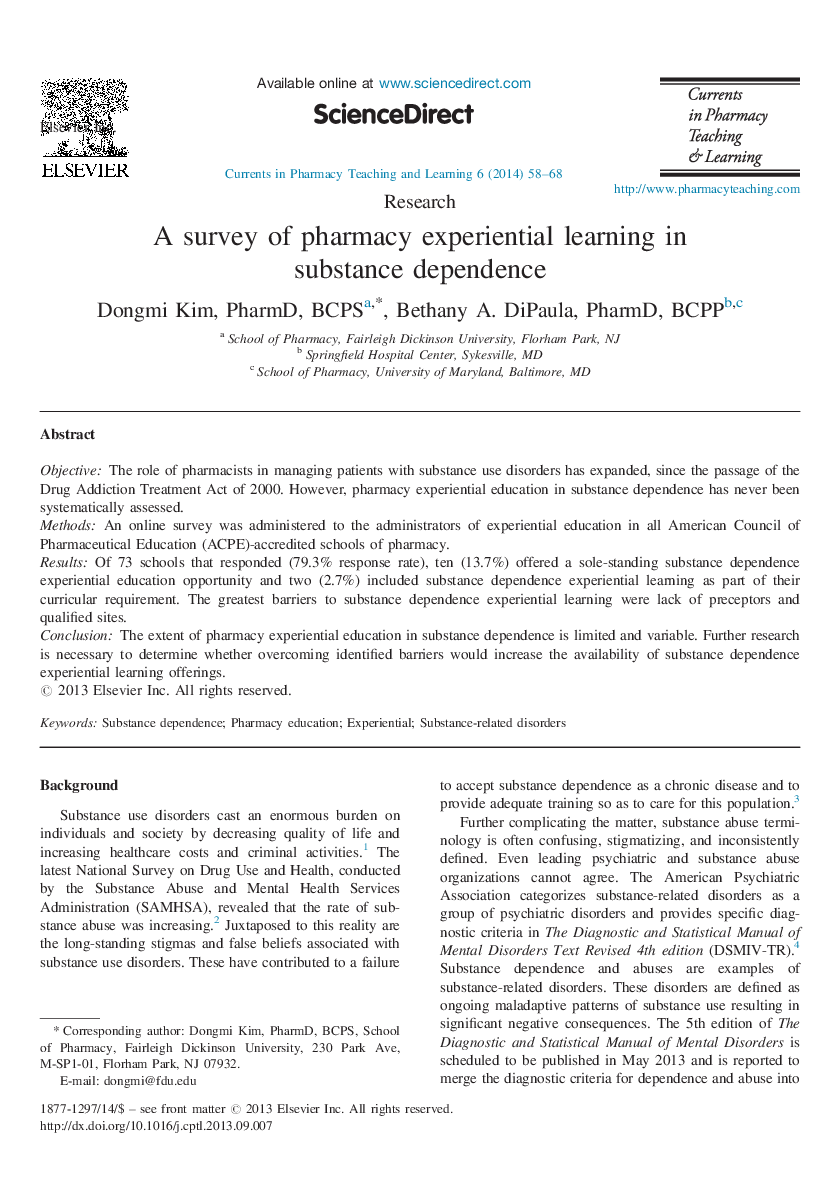| Article ID | Journal | Published Year | Pages | File Type |
|---|---|---|---|---|
| 353212 | Currents in Pharmacy Teaching and Learning | 2014 | 11 Pages |
ObjectiveThe role of pharmacists in managing patients with substance use disorders has expanded, since the passage of the Drug Addiction Treatment Act of 2000. However, pharmacy experiential education in substance dependence has never been systematically assessed.MethodsAn online survey was administered to the administrators of experiential education in all American Council of Pharmaceutical Education (ACPE)-accredited schools of pharmacy.ResultsOf 73 schools that responded (79.3% response rate), ten (13.7%) offered a sole-standing substance dependence experiential education opportunity and two (2.7%) included substance dependence experiential learning as part of their curricular requirement. The greatest barriers to substance dependence experiential learning were lack of preceptors and qualified sites.ConclusionThe extent of pharmacy experiential education in substance dependence is limited and variable. Further research is necessary to determine whether overcoming identified barriers would increase the availability of substance dependence experiential learning offerings.
